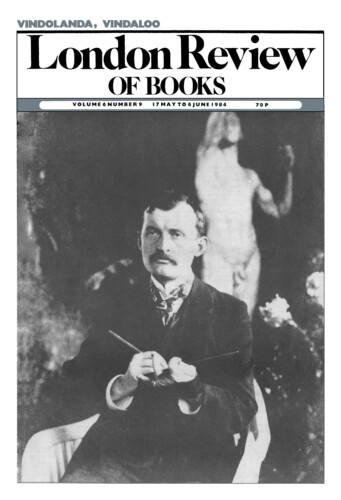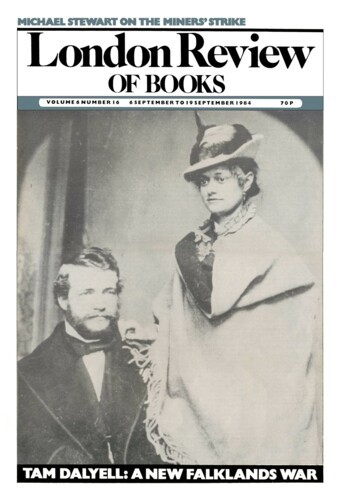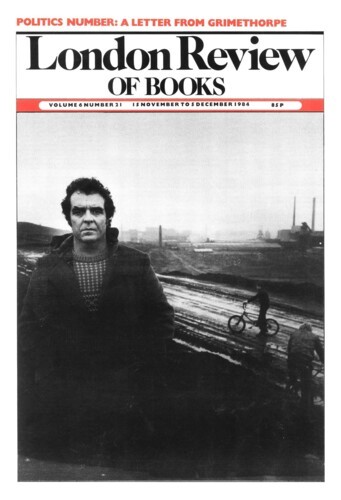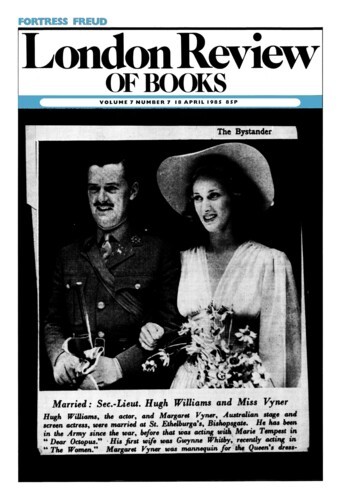Haig speaks back
Keith Kyle, 17 May 1984
Considering how essential one might suppose it to be that the President who is in charge of American foreign policy and the Secretary of State who heads the department which specialises in it should not only get on well but be able, under the pressure of competing crises, to operate in almost telepathic harmony with one another, it is remarkable how seldom a new President’s choice of his senior cabinet member is made on more than casual acquaintance. It is well-known that John F. Kennedy met Dean Rusk for the first time when he interviewed him for the job: Reagan and Haig had seen each other three times before the Election of 1980 but on only one of these occasions, shortly before Reagan’s nomination, had there been anything that might be described as a talk. Then they traded political clichés and thought that they were at one except over conscription (Haig was for, Reagan against); and Haig went away with the comforting impression that Reagan was a genuinely ‘nice guy’ who had spoken to him as if he had really liked him. In Haig’s book there are periodic references to this disarming quality, which gradually comes to seem rather sinister. ‘Because of habitual courtesy,’ Haig says of Reagan at one point, ‘it is at times difficult to know when he is agreeing or disagreeing, approving or disapproving.’





